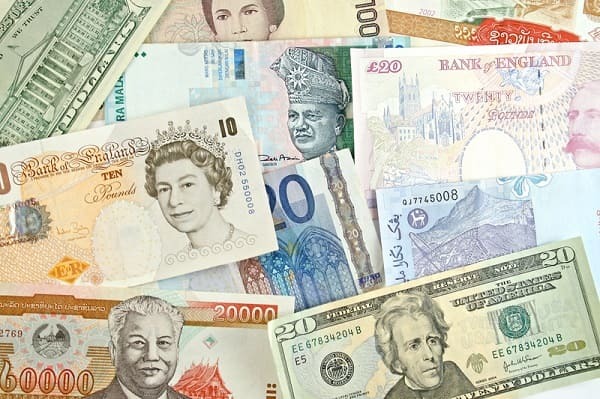
 Data Structure
Data Structure Networking
Networking RDBMS
RDBMS Operating System
Operating System Java
Java MS Excel
MS Excel iOS
iOS HTML
HTML CSS
CSS Android
Android Python
Python C Programming
C Programming C++
C++ C#
C# MongoDB
MongoDB MySQL
MySQL Javascript
Javascript PHP
PHP
- Selected Reading
- UPSC IAS Exams Notes
- Developer's Best Practices
- Questions and Answers
- Effective Resume Writing
- HR Interview Questions
- Computer Glossary
- Who is Who
What is the full form of ACU ?
Introduction
The Asian Currency Union (ACU) is a clearinghouse for payments among central banks in Asia, designed to facilitate regional monetary cooperation and promote trade and investment among member countries. The ACU was established in 1977 by 10 Asian central banks and has since expanded to include other Asian countries, including China, Japan, and South Korea.

The ACU allows member countries to settle payments for trade and investment in local currencies, reducing their dependence on foreign currencies and promoting financial stability in the region. The ACU operates on a 24-hour basis and offers a range of financial services, including foreign exchange transactions, money market operations, and liquidity management.
History
The Asian Currency Union (ACU) was established in 1977 as a regional initiative to promote monetary cooperation among Asian countries. The ACU was created by the Asian Development Bank (ADB) and is currently composed of twelve member countries, including Bangladesh, Bhutan, India, Iran, the Maldives, Nepal, Pakistan, Sri Lanka, China, Japan, South Korea, and Mongolia.
The ACU was created in response to the growing need for regional monetary cooperation in Asia, as many countries in the region were struggling with high inflation rates, currency volatility, and balance of payments problems. The ACU aimed to reduce dependence on foreign currencies and promote the use of local currencies in cross-border transactions, helping to stabilize exchange rates and promote economic growth in the region.
Objectives and Purpose of ACU
The objectives and primary purpose of ACU are
To promote regional monetary cooperation and financial stability among member countries.
To facilitate trade and investment among member countries by providing a mechanism for settling payments in local currencies.
To reduce the dependence on foreign currencies in regional trade and investment.
To encourage the use of local currencies in cross-border transactions.
To enhance the efficiency and competitiveness of member countries' financial systems.
ACU Transactions and Settlements
The ACU is primarily focused on facilitating transactions and settlements among member countries, providing a platform for the exchange of local currencies and reducing dependence on foreign currencies. Transactions and settlements in the ACU are typically conducted through the use of the ACU Dollar, a synthetic currency based on a basket of local currencies.
One of the key features of the ACU is the use of a clearinghouse system to settle payments among member countries. When a payment is made between two member countries, it is first settled in the local currency of the exporting country. The local currency is then converted into ACU Dollars, which are used to settle the payment with the importing country. The ACU also provides a range of financial services to support cross-border transactions and settlements.
ACU Market and Operations
The ACU market is a vital component of the Asian Currency Union, providing a platform for the exchange of local currencies among member countries. The ACU operates as a clearinghouse for payments among central banks, allowing member countries to settle payments in local currencies rather than relying on foreign currencies. This promotes the use of local currencies in cross-border transactions, reducing dependence on foreign currencies and minimizing currency risk. The ACU market provides a range of financial services, including foreign exchange transactions, money market operations, and liquidity management.

The operations of the ACU market are managed by the ACU Secretariat, which is responsible for overseeing the clearing and settlement of payments among member countries. The ACU Secretariat also provides financial and technical assistance to member countries to support the development of local currency markets and financial systems.
Benefits and Challenges of ACU
Benefits
Facilitates trade and investment among member countries by providing a mechanism for settling payments in local currencies.
Reduces the dependence on foreign currencies in regional trade and investment, promoting financial stability in member countries.
Encourages the use of local currencies in cross-border transactions, promoting the development of local currency markets and financial systems.
Enhances the efficiency and competitiveness of member countries' financial systems.
Challenges
Limited participation of some Asian countries in the ACU, limiting its potential impact on regional trade and investment.
Exchange rate fluctuations and interest rate differentials among member countries can affect the volume of transactions in the ACU.
Political and economic instability in member countries can affect the stability of the ACU.
Limited awareness and understanding of the ACU among businesses and investors may limit its effectiveness in promoting regional trade and investment.
Conclusion
In conclusion, the Asian Currency Union serves as a vital mechanism for promoting regional monetary cooperation and financial stability, while also facilitating trade and investment among member countries.
Although there are challenges to the ACU, including limited participation and political and economic instability in member countries, it remains an important tool for enhancing the efficiency and competitiveness of member countries' financial systems. As the ACU continues to evolve and expand, it has the potential to play an even more significant role in promoting economic growth and development in the region.
FAQs
Q1. How is the Asian Currency Union different from other regional monetary organizations like the European Union?
Ans. The Asian Currency Union and the European Union have different objectives and operate on different scales. While the EU is a political and economic union of 27 member countries that share a common currency (the euro), the ACU is a clearinghouse for payments among central banks in Asia.
Q2. What are some benefits of using local currencies for trade and investment?
Ans. Using local currencies for trade and investment can provide several benefits, including reduced transaction costs, increased efficiency, and greater financial stability. Local currency transactions can eliminate the need to convert currencies, reducing transaction costs and foreign exchange risk. They can also be settled more quickly, increasing efficiency and reducing settlement risk.
Q3. How can businesses and investors take advantage of the Asian Currency Union?
Ans. Businesses and investors can take advantage of the Asian Currency Union by using local currencies for trade and investment transactions. This can reduce transaction costs and foreign exchange risk, while also promoting financial stability.

